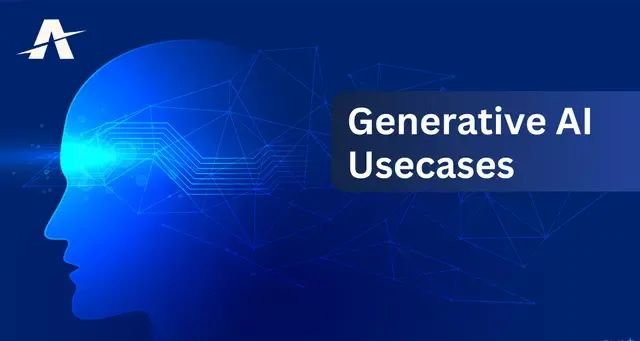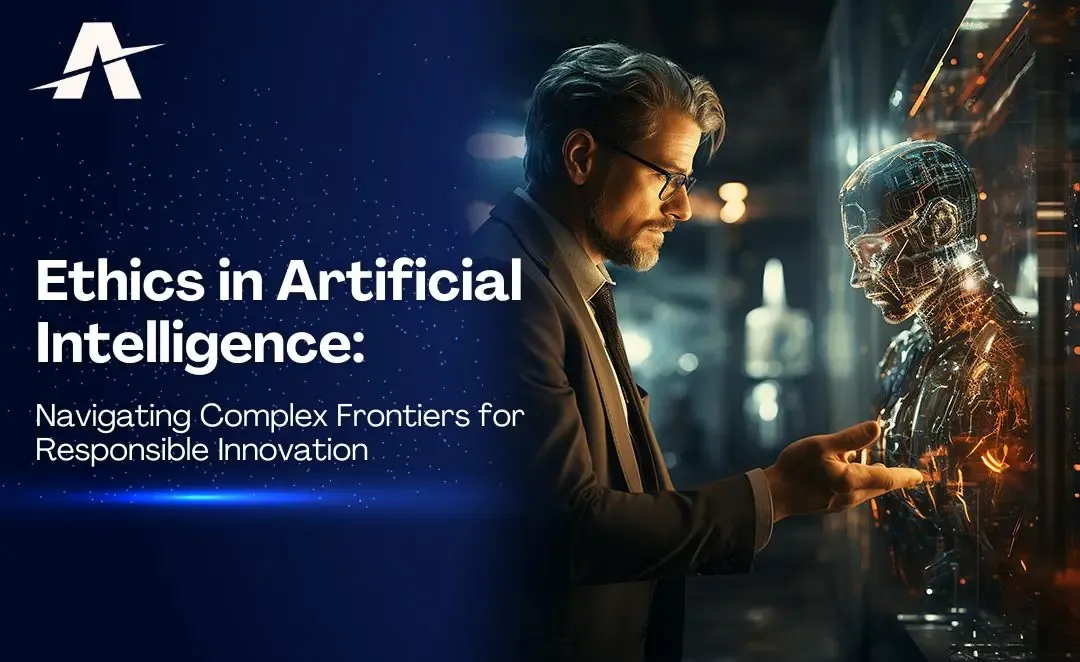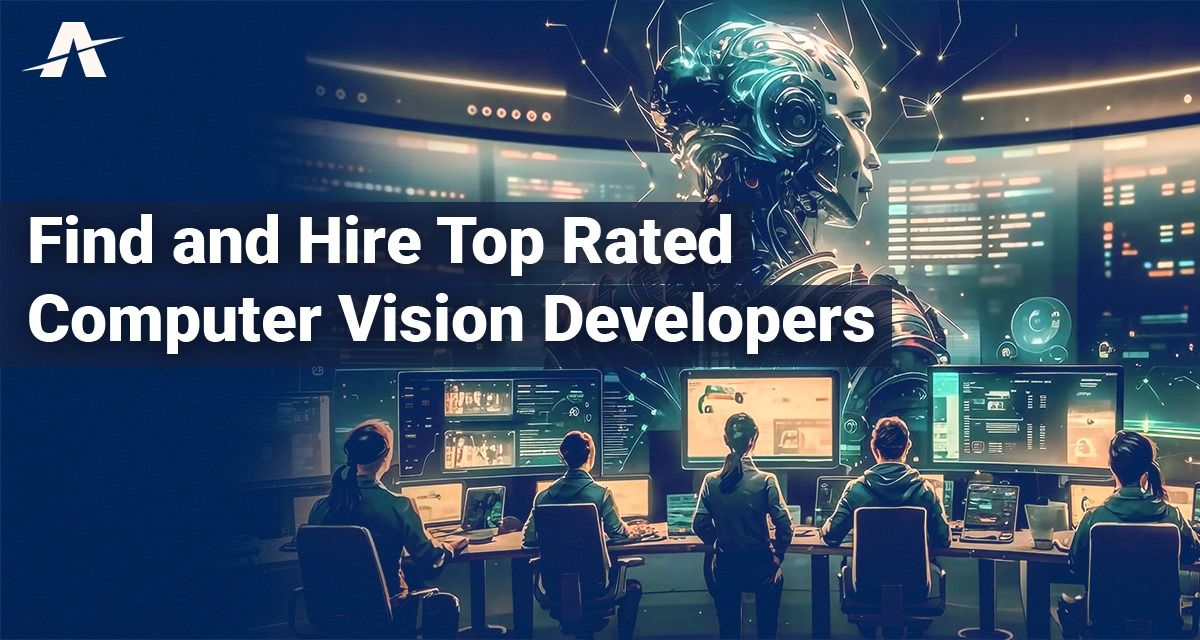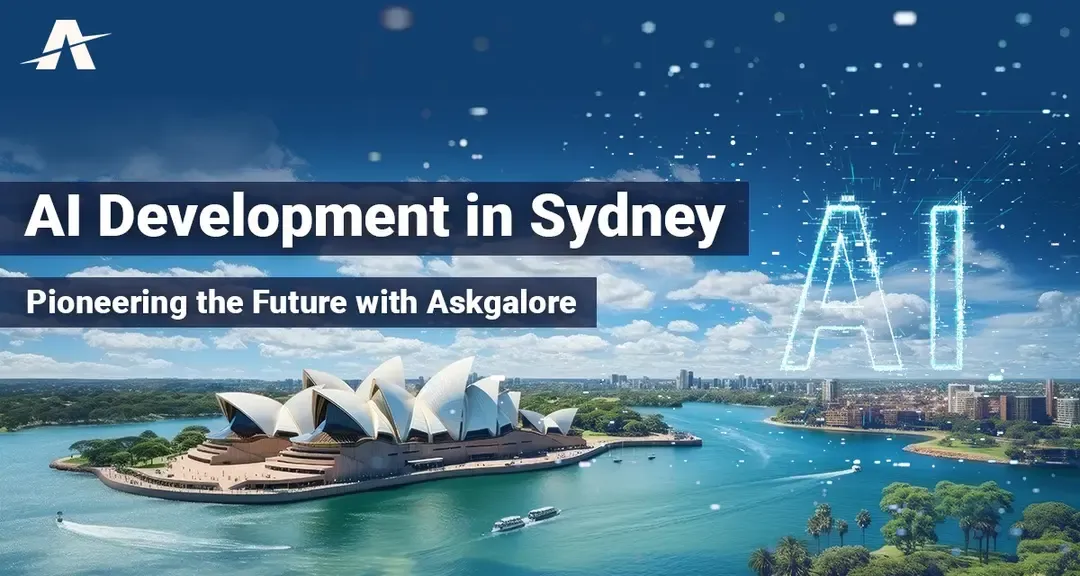
Artificial intelligence has emerged as a technology which has the capacity to transform industries, increase workforce efficiency at a fundamental level, and also open up new growth opportunities. However, rising concerns regarding ethical dilemmas surrounding the development and implementation of these systems are now gaining prominence as systems which employ AI in any manner or shape become more technically advanced and increasingly intertwined in our daily lives and society in general. We cover the most important areas when it comes to ethical AI development in this article, particularly the value of ethics in AI, its challenges, and ongoing attempts to promote ethical innovation.
Understanding Ethics:
We can consider ethics as the moral compass that acts as a guide for human behavior and points toward what is morally right or wrong, good or bad, in a particular situation. Ethical considerations, in the case of systems which employ artificial intelligence, focus on the potential consequences of such technology for individuals, communities and society as a whole. These include questions of fairness, openness, accountability and human rights protection in the various aspects such as development, implementation and application of AI technologies.
The Emergence of Ethical Concerns:
People are becoming more conscious of the ethical conundrums that AI-powered systems frequently face as a result of their rapidly developing capabilities. Rising ethical issues such as bias, discrimination, privacy invasion, and other unforeseen repercussions as these systems get more complicated and exhibit a higher degree of autonomy in their interactions with users have resulted in an increasing number of individuals becoming concerned about ethical implementation of AI. While face recognition systems have been criticized in the past for their potential to breach individual privacy rights and their use in surveillance technology, biased algorithms employed in automated processes such as hiring procedures have the potential to cause systematic discrimination.
Current State of Ethics in AI:
The study of ethics in AI systems is currently shaped by a complex interplay among societal standards, legislative frameworks, and technological developments. A broad variety of stakeholders, including as legislators, business executives, researchers, and advocacy groups, are actively involved in the development of best practices and ethical standards which will guide the development and implementation of ethically sound systems.
Generative AI and arising ethical concerns:
Research and application in generative AI, which allows machines to produce original text, music, and pictures, continues to become increasingly popular. Generative artificial intelligence gives rise to ethical issues that require to be carefully weighed, even while it offers large potential in promoting creativity and innovation.
The potential for Gen AI in creating deceptive or harmful information is one of the major concerns. For example, deepfake technology, with generative AI algorithms at its core, can produce incredibly lifelike spoof movies showing people talking or doing things which have not happened in real life. Deepfakes possess the ability to disseminate false information, erode confidence in the media, and even sway public opinion, as demonstrated by cases in which edited videos have been used to target political figures.
Challenges in Ethical Development of AI:
Despite the promise shown by AI in improving lives and advancing society, several challenges stand between its ethical development and implementation:
Bias and Fairness
Systems which rely on AI for decision making, if trained on biased data whether intentionally or unintentionally have a tendency to further entrench or intensify already existing societal biases, providing disproportionate results. It has been found that prejudice based on race, for instance, is present within the algorithms used by criminal justice systems, leading to disproportionately harsher penalties for some demographic groups.
Accountability and Transparency
Regulation and accountability are restricted by the lack of transparency in how AI driven methods integrated into systems arrive at certain conclusions. Proprietary algorithms, developed an employed by organizations in systems which are designed to make the process of decision making more and more autonomous, for instance, may not always be transparent in nature which can make it hard to know how judgments and conclusions are generated and evaluated and who can be held accountable for biases or errors that occur.
Privacy and Security
Ethical concerns over invasion of personal privacy and breaches in data security have recently come to light due to an increase in the collection and analysis of personal data which is crucial for AI systems. As an instance, the growing number of artificial intelligence-enabled smart home devices might accidentally expose personal information about their users to third parties who can use it for monitoring or other illegal purposes.
Regulation and control: Concerns related to the degree of human oversight and regulation have also become more apparent with the increasing level of autonomy displayed by modern applications implementing AI. The Autonomous vehicles industry is one of the areas where such concerns are the most apparent. Self-driving vehicles equipped with AI-powered driving systems raise many ethical dilemmas regarding liability and responsibility in the event of accidents or errors
Efforts Towards Ethical AI Development
Despite many challenges, some of which are discussed above, there are concerted efforts underway to promote ethical AI development and deployment:
Regulatory Frameworks
Many Governments and regulatory agencies are now also directing more resources and efforts towards the development of rules,regulations and guidelines, to ensure that any AI technology is developed and used in an ethical manner. One of the pioneering regulatory frameworks to ensure responsible use of AI technology is the The General Data Protection Regulation (GDPR) introduced by the European Union. It includes guidelines related to data protection and automated decision-making that could ultimately have an effect on the development and use of future AI systems.
Ethical Guidelines
Industry organizations, academic institutions, and professional associations are developing ethical guidelines and principles to govern the development and use of AI technologies. For example, the Institute of Electrical and Electronics Engineers (IEEE) has developed Ethically Aligned Design principles to promote the responsible and ethical development of AI.
Industry Standards
Collaborative efforts within the industry are also contributing to ethical AI development . For example, the Fairness, Accountability, and Transparency in Machine Learning (FAT/ML) community has developed standards and practices to ensure fairness and transparency in AI algorithms. These efforts aim to address ethical concerns and promote trust in AI technologies.
The field of ethics in artificial intelligence will always be diverse and dynamic, necessitating careful thought and proactive approaches in order to address ethical issues and encourage responsible innovation. We can maximize the benefits of AI for both individuals and society while minimizing risks and maximizing collaboration, transparency, and adherence to ethical standards. As we explore the often complex barriers in the field of AI ethics, giving priority to ethical issues and making sure that these technologies serve the common good, preserve human rights, and contribute to a more just and sustainable future will be essential.










